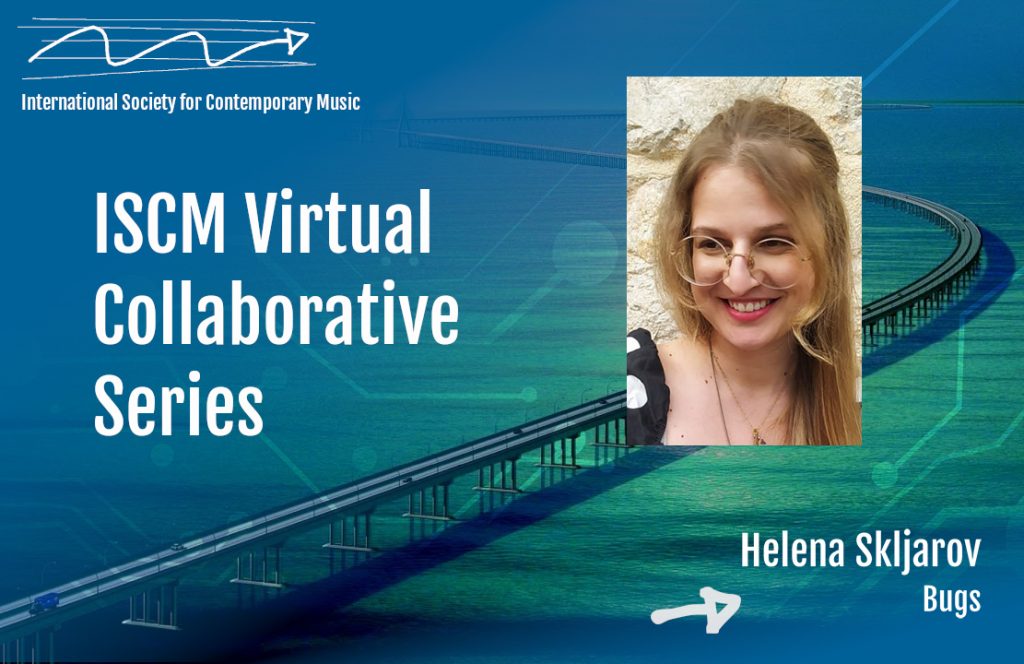Helena Skljarov: Bugs

Helena Skljarov (b. 1993 in Zagreb) graduated in musicology from the Music Academy, University of Zagreb in 2017. In 2014, she began the study of composition at the same university in the class of Prof. Berislav Šipuš. In 2018, she received the Rector’s Award for her composition Pulsar which was premiered in Zagreb by a student orchestra and conducted by maestro Quentin Hindley. She has participated in various international masterclasses and festivals. In autumn 2019, she lived and studied in Lyon as an ERASMUS student in the class of Prof. Martin Matalon. In June 2020, she was a composer-in-residence at the Festival d’Aix-en-Provence. In July 2020, she completed her opera Nothing under the mentorship of Berislav Šipuš with her opera Nothing. In 2021, her string quartet Silence was selected for the 2021 ISCM World New Music Days in Shanghai and Nanjing. As a musicologist, she has written music critics and reviews of newly published editions of contemporary composers since 2017. Her works up to now numbered to some forty compositions for various solo instruments, larger or smaller chamber ensembles, one symphony and two operas. Currently she is particularly interested in interdisciplinary art: she is researching the relationship between image and sound through music software, and making videos of the process of painting and performances.
About Bugs (2022), a quartet for flute, violin, violoncello commissioned by the Hong Kong Cotemporary Music Festival which presented the work’s world premiere performance in December 2022, Skljarov writes: “In this composition, I explore the range of beauty and ugliness of thoughts that people often cannot drive away, but are bothered and haunted. This may be a metaphor for bugs, which are beautiful living creatures but can also be terrifying and dangerous at times. Every creature, event, thought or feeling can be viewed from multiple perspectives, even highly different ones. The musical idea is to reconcile the timbre of four instruments in all the different ways of presenting the musical materials and in all their extremes.”
